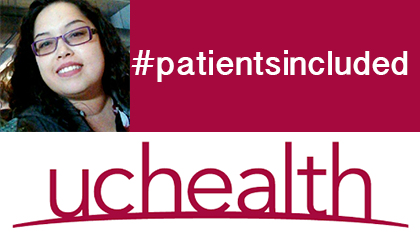
It’s been nearly five years since Bella Wong received a bi-lateral lung transplant at UCHealth University of Colorado Hospital in Aurora, Colorado, and she’s still going to pulmonary rehabilitation twice a week – but not because she has to.
“I ran into one of my doctors and he said, ‘We fixed you already, you only need to go to rehab for a couple weeks after transplant.’ And I told him, ‘It’s my social hour!’” Bella recalls.
Bella enjoys seeing members of her healthcare team who have come to seem like family, and she loves mentoring new patients.
“Sometimes it’s easier to relate to another patient who’s been through what you’ve been through,” she says. “Whatever is going to help the next person within their journey to help them get better and make it an easier process, I’m going to do it.”
It’s the same compassion that compelled Bella to join UCHealth’s Patient & Family Advisory Council (PFAC) as an advisor representing the patient voice in health system planning and decision making.
Bella has a complex health history. She was living in southern California when she was diagnosed with bronchiolitis obliterans organizing pneumonia, a rare inflammatory lung disorder that left her bedridden. She relocated to Colorado to be near her parents who could help with her care. With new lungs, Bella feels great and is doing well. She’s extremely invested in her own health, is grateful for the excellent care she continues to receive at UCHealth, and says she always feels like she’s a welcome member of her own care team. She realizes that many patients don’t feel empowered in the same way, and she’s happy to represent them on the Council.
“I want to know as much as I can about anything that pertains to me because if I’m going to make a decision, I want to make an educated one,” she says. “So, OpenNotes is a game changer for patients. It can help us remember, and it can help us relay information or help us take better care of our loved ones.”
UCHealth’s PFAC has about 30 members. The Council played a critical role in supporting Chief Medical Information Officer Dr. CT Lin’s work to gain physician leadership consensus as the health system moved toward adopting OpenNotes.
“We conducted some of the original research on OpenNotes back in 2001, allowing patients to read their doctors’ ‘progress notes’ about them. As a result, patients were better able to follow the care plan, had more trust in their doctors, and were more timely on refilling their prescriptions,” says Dr. Lin. “Despite doctors being hesitant about sharing these notes, it is now the standard of care at UCHealth, where every outpatient note, every Emergency Department doctor note, and every hospital discharge summary is ‘open’ and viewable by the patient on their secure online portal.”
Having the PFAC involved from the start ensured that the patient perspective was front and center as the health system developed its strategy for rolling out OpenNotes.
“I know they say that everyone will be a patient at some point in their life, but when you have a cancer patient on the Council who was there every day doing radiation, doing chemotherapy, it’s different than a doctor who’s there every day on the other side of the stethoscope,” says Bella. “That’s why it’s so important to have councils like this.”
Even with over a year of note-sharing experience at UCHealth, the advisors continue to provide input and recommend improvements. Bella would like to see the Council focus attention on getting more patients signed up for My Health Connection, UCHealth’s patient portal. She thinks an effective strategy would include utilizing clinic volunteers to show patients how to register for the portal and how to access their health information, including their visit notes.
It’s something she already does with her fellow patients in pulmonary rehab.
“I just whip out my phone and it takes not even two minutes to sign them up,” she says. “They love it! And then later on, they’ll say to me, ‘Hey, do you know what you can see on the portal?’ And I’m like, ‘Yes, I do.’”



